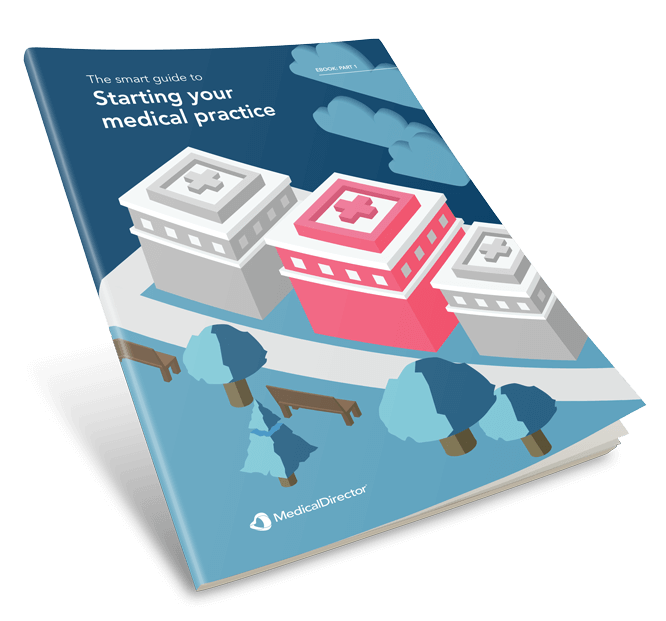Starting your own medical practice: 5 fee and billing issues to consider
One of the fundamental considerations when starting your own medical practice is your medical fee and billing structure. MedicalDirector’s latest guide, ‘Calculating the cost of starting your medical practice,’ reveals key fee and billing questions to consider when starting your own medical practice.
In this article, you’ll get an overview of some important questions to ask yourself, and why. You’ll also learn more about how cost considerations can play into the success of your practice. It pays to do solid financial research in the early stages of your business, so you don’t get caught out down the track.
Here are 5 crucial billing questions to ask yourself when starting your own medical practice
1. What will your fee per consult be?
Charging the proper fee for a consultation and determining billing types is critical to ensuring the financial viability of your practice.
Aside from setting your fees, it’s important to be on top of the latest changes in the industry. Every year, medical billing surfaces as a hot topic of regulatory debate, with changes and updates regularly implemented.
2. Will you offer bulk billing, private or both?
Make sure you stay on top of any changes to Medicare, as this can directly impact your billing and expenditure.
This also means knowing the MBS item numbers relevant to your practice, so that your practice is billing appropriately, and understands the rules and restrictions around them.
Charging appropriately for item numbers also helps make sure practitioner consultations are valued and the practice is properly remunerated.
3. What are your projected fees, costs and charges?
Take a big picture look at your financial forecast. Start by identifying which fees, costs and charges will be one-off, and which will occur monthly, quarterly, and annually. This projection will help you better manage and set up your budget, and organise your cash flow from the outset. By identifying and budgeting for this from the set up stage, you’re less likely to get caught out in the future.
4. How many patients can your practice manage?
Run the numbers based on your specific circumstances. If you’re using cloud based medical software, it could significantly influence your business plan. Professor (Dr) Martin Samy, founder of the Samy Medical Group in Western Australia, believes choosing cloud clinical and practice management software had a direct impact on how many patients his medical group could forecast to manage from the start.
“Cloud software influenced how many patients we can forecast to see a day and helped us see clearly from the outset how we could make money,” he said. “It even impacted whether we wanted to go bulk billing or not. In fact, we wouldn’t go for bulk billing if it wasn’t for cloud. That’s how much of an influence cloud has on your business plan.”
5. What’s your projected weekly income?
When starting your own medical practice, the best business plans are simple, agile and offer scope for scalability. As a start, you need to consider not only your projected weekly income, but also how you’ll build your patient base, attract and retain new patients, and whether you need referrals to help grow your practice sustainably.
To find out more, download our free ebook: ‘Calculating the cost of starting your medical practice’
Over to you
Did you find this article helpful? If so, make sure you download the free ebook for even more useful advice. Be sure to share this article with others starting their own practice who would benefit from this information.
Chat to an expert
Ready to start a practice? Chat to an expert practice consultant about your needs today.










